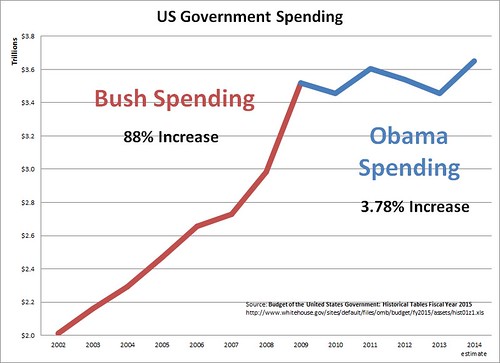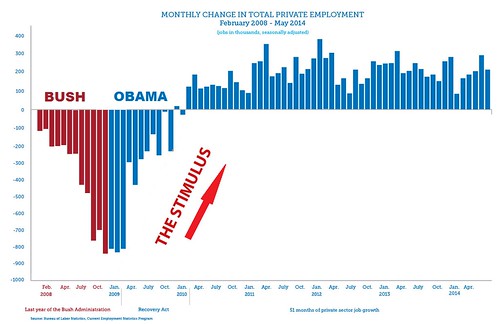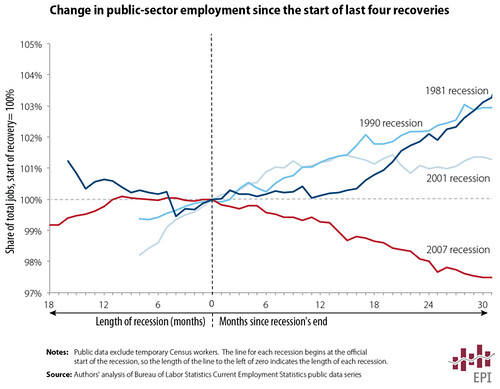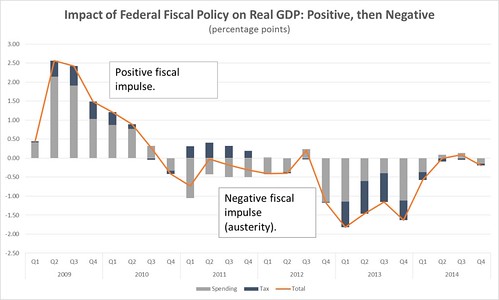Okay, okay, I finally get it, i.e., THE
Donald. I get why he's leading in the polls. I get why he's saying
outrageous things and getting away with saying them. And finally, I
get why some people like him.
First off, he says things others wish
they could say and he gets away with it. He says things racists and
bigots like to hear and homophobes simply climax when he says
horrible things about Mexicans and immigrants of all kinds and
stripes. There are a noisy bunch of folks out there who are
terrified of anyone who is not a white Anglo-Saxon Protestant.
Anyone who is Muslim is a terrorist, including the President of the
United States [who, by the way, should be impeached].
Donald Trump finally has found that
special segment of our society who have quietly been fuming about
Political Correctness for decades. If Donald says something ugly and
demeaning, they raise a glass and salute him in the local
peanut-shell-strewn beer pub. Crazed pulpit pounders who have been
preaching doom and destruction for years can point to Donald and say,
“See, here's a man who knows the truth and ain't afraid to stand up
and say so. And if he tells a few tall tales, so what?”
It doesn't matter if, in fact, The
Donald is telling the truth. “.... “thousands and
thousands” of Muslims in New Jersey were “cheering,” Said
Donald, at the time of the 9/11 disaster. [Blatantly false] Trump
boasted that he “predicted Osama bin Laden.” [Nope] Trump
“heard” that Obama is “thinking about signing an executive
order where he wants to take your guns away.” [Huh Uh] Trump
said he “heard” the Obama administration plans to accept
200,000 Syrian refugees — even upping that wildly inaccurate number
to 250,000 in another speech. [Absolutely wrong both times] Trump
said he got to know Putin “very well” while the two were on CBS’
“60 Minutes.” [Interviews thousands of miles apart] Trump told
the story of a 2-year old who got autism a week after the child got
a vaccine. [Dangerously wrong] Trump said Mexico doesn’t have a
birthright citizenship policy. [Oh, yes it does] Trump claimed
credit for getting Ford Motor Co. to move a plant from Mexico to
Ohio. [Ford says The D. doesn't know what he's talking about] Trump
denied that he ever called female adversaries some of these things:
“fat pigs, dogs, slobs and disgusting animals.” [Yep, he said
'em all] Trump said in June “there are no jobs” to be had, when
official statistics were showing 5.4 million job openings — the
most in 15 years. [Oops] Trump claimed economic growth in the U.S.
has “never” been below zero — until the third quarter of 2015.
“Who ever heard of this?” he asked. [Except it’s not unheard
of. Economic growth has been below zero 42 times since 1946.]
But...still...I get it. There's a
segment of society who thinks Barack Obama lies all the time too.
And, ol' Barack has told a few in his day. If you would like to
check it out, go to
http://www.snopes.com/politics/obama/50lies.asp
and you'll find 50 lies he's told over his 8 years in office.
1.) Selma Got Me Born - LIAR, your parents felt safe enough to
have you in 1961 - Selma had no effect on your birth, as Selma was in
1965.
2.) Father Was A Goat Herder - LIAR, he was a privileged,
well educated youth, who went on to work with the Kenyan Government.
3.) Father Was A Proud Freedom Fighter - L IAR, he was part of
one of the most corrupt and violent governments Kenya has ever had.
4.) My Family Has Strong Ties To African Freedom - LIAR, your
cousin Raila Odinga has created mass violence in attempting to
overturn a legitimate election in 2007, in Kenya. It is the first
widespread violence in decades.
5.) My Grandmother Has Always
Been A Christian - LIAR, she does her daily Salat prayers at 5am
according to her own interviews. According to the New York Times: "I
am a strong believer of the Islamic faith," Ms. Obama, 85, said
in a recent interview in Kenya.' Not to mention, Christianity
wouldn't allow her to have been one of 14 wives to 1 man.
6.) My
Name is African Swahili - LIAR, your name is Arabic and 'Baraka'
(from which Barack came) means 'blessed' in that language. Hussein is
also Arabic and so is Obama.
7.) I Never Practiced Islam - LIAR,
you practiced it daily at school, where you were registered as a
Muslim and kept that faith for 31 years,until your wife made you
change, so you could run for office.
8.) My School In Indonesia
Was Christian - LIAR, you were registered as Muslim there and not in
trouble in Koranic Studies for making faces (check your own book).
9.) I Was Fluent In Indonesian - LIAR, not one teacher says you
could speak the language.
10.) Because I Lived In Indonesia, I
Have More Foreign Experience - LIAR, you were there from the ages of
6 to 10, and couldn't even spea k the language. What did you learn,
how to study the Koran and watch cartoons.
11.) I Am Stronger On
Foreign Affairs - LIAR, except for Africa (surprise) and the Middle
East (bigger surprise), you have never been anywhere else on the
planet and thus have NO experience with our closest allies. You seek
to disarm America while our avowed enemy, Iran, will not subject
itself to a nuclear ban. Top Hamas politica l adviser Ahmed Yousef
said the Hamas terrorist group 'supports Obama's foreign policy
vision'.
12.) I Blame My Early Drug Use On Ethnic Confusion -
LIAR, you were quite content in high school to be Barry Obama, no
mention of Kenya and no mention of struggle to identify - your
classmates said you were just fine.
13.) An Ebony Article Moved
Me To Run For Office - LIAR, Ebony has yet to find the article you
mention in your book. It doesn't, and never did, exist.
14.) A
Life Magazine Article Changed My Outlook On Life - LIAR, Life has yet
to find the article you mention in your book. It doesn't, and never
did, exist.
15.) I Won't Run On A National Ticket In '08 - LIAR,
here you are, despite saying, live on TV, that you would not have
enough experience by then, and you are all about having experience
first.
16.) Present Votes Are Common In Illinois - LIAR, they are
common for YOU, but not many others have 130 NO VOTES.
17.) Oops,
I Misvoted - LIAR, only when caught by church groups and Democrats,
did you beg to change your misvote.
18.) I Was A Professor Of Law
- LIAR, you were a senior lecturer ON LEAVE.
19.) I Was A
Constitutional Lawyer - LIAR, you were a senior lecturer ON LEAVE.
20.) Without Me, There Would Be No Ethics Bill - LIAR, you didn't
write it,introduce it, change it, or create it.
21.) The Ethics
Bill Was Hard To Pass - LIAR, it took just 14 days from start to
finish.
22.) I Wrote
A Tough Nuclear Bill - LIAR, your bill was rejected by your
own party for its pandering and lack of all regulation - mainly
because of your Nuclear Donor, Exelon, from which David Axelrod came.
23.) I Have Released My State Records - LIAR, as of March, 2008,
state bills you sponsored or voted for have yet to be released,
exposing all the special interests pork hidden within.
24.) I
Took On The Asbestos Altgeld Gardens Mess - LIAR, you were part of a
large group of people who remedied Altgeld Gardens. You failed to
mention anyone else but yourself, in your books.
25.) My
Economics Bill Will Help America - LIAR, your 111 economic policies
were just combined into a proposal which lost 99-0, and even YOU
voted against your own bill.
26.) I Have Been A Bold Leader In
Illinois - LIAR, even your own supporters claim to have not seen BOLD
action on your part.
27.) I Passed 26 Of My Own Bills In One Year
- LIAR, they were not YOUR bills, but rather handed to you, after
their creation by a fellow Senator, to assist you in a future bid for
higher office.
28.) No One Contacted Canada About NAFTA - LIAR,
the Candian Government issued the names and a memo of the
conversation your campaign had with them.
29.) I Am Tough On
Terrorism - LIAR, you missed the Iran Resolution vote on terrorism
and your good friend Ali Abunimah supports the destruction of Israel.
You state you will open friendly communication with the Leader of
Iran who is attempting to develop nuclear weapons to destroy us, but
refuse to speak to FOX news. You are against provisions of the
Patriot act which would all wiretapping of the phones of suspected
terrorists in the USA.
30.) I Am Not Acting As President Yet -
LIAR, after the NAFTA Memo, a dead terrorist in the FARC, in
Colombia, was found with a letter stating how you and he were working
together on getting FARC recognized officially.
31.) I Didn't Run
Ads In Florida - LIAR, you allowed national ads to run 8-12 times per
day for two weeks - and you still lost.
32.) I Won Michigan -
LIAR, no you didn't.
33.) I won Nevada - LIAR, no you did not.
34.) I Want All Votes To Count - LIAR, you said let the delegates
decide.
35.) I Want Americans To Decide - LIAR, you prefer
caucuses that limit the vote, confuse the voters, force a public
vote, and only operate during small windows of time.
36.) I
passed 900 Bills in the State Senate - LIAR, you passed 26, most of
which you didn't write yourself.
37.) My Campaign Was Extorted By
A Friend - LIAR, that friend is threatening to sue if you do not stop
saying this. Obama has stopped saying this.
38.) I Believe In
Fairness, Not Tactics - LIAR, you used tactics to eliminate Alice
Palmer from running against you.
39.) I Don't Take PAC Money -
LIAR, you take loads of it.
40.) I don't Have Lobbysists - LIAR,
you have over 47 lobbyists, and counting.
41.) My Campaign Had
Nothing To Do With The 1984 Ad - LIAR, your own campaign worker made
the ad on his Apple in one afternoon.
42.) My Campaign Never Took
Over MySpace - LIAR, Tom, who started MySpace issued a warning about
this advertising to MySpace clients.
43.) I Inspire People With
My Words - LIAR, you inspire people with other people's words.
44.)
I Have Passed Bills In The U.S. Senate - LIAR, you have passed A BILL
in the U.S. Senate - for Africa, which shows YOUR priorities.
45.)
I Have Always Been Against Iraq - LIAR, you weren't in office to vote
against it AND you have voted to fund it every single time, unlike
Kucinich, who seems to be out gutting you Obama. You also seem to be
stepping back from your departure date - AGAIN.
46.) I Have
Always Supported Universal Health Care - LIAR, your plan leaves us
all to pay the 15,000,000 who don't have to buy it.
47.) I Only
Found Out About My Investment Conflicts Via Mail - LIAR, both
companies you site as having sent you letters about this conflict
have no record of any such letter ever being created or sent.
48.)
I Am As Patriotic As Anyone - LIAR, you won't wear a flag pin and you
don't put your hand over your heart during the Anthem. There is a
Cuban Flag with Che Guevara Displayed at Barack Obama Campaign Office
which you allow to be displayed. You voted against making english the
official language of the United States. You voted to give illegal
aliens social security benefits, which would bankrupt the social
security system for Americans legally paying into it.
49.) My
Wife Didn't Mean What She Said About Pride In Country - LIAR, your
wife's words follow lock-step in the vain of Rev. Wright and Louis
Farrahkan, in relation to their contempt and hatred of America.
50.)
Wal-Mart Is A Company I Wouldn't Support - LIAR, your wife has
received nearly a quarter of a million dollars through Treehouse,
which is connected to Wal-Mart.








